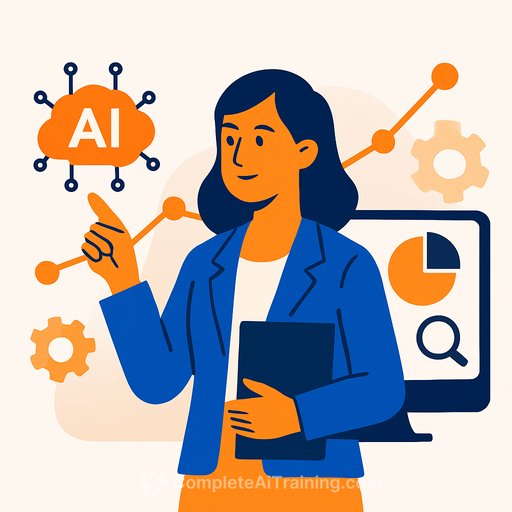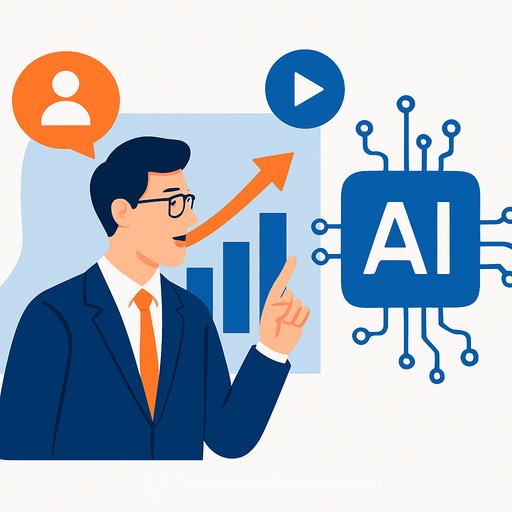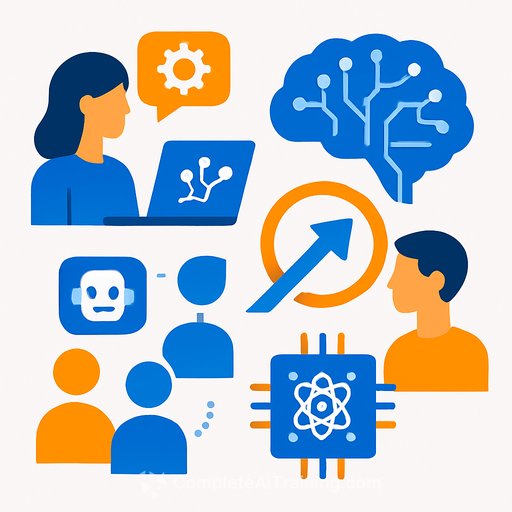The AI-fluent CMO: A New Era of Marketing Leadership
Artificial intelligence is reshaping marketing—from strategy to execution—enabling precision, personalisation, and efficiency like never before. AI-driven tools analyse huge datasets, predict customer behaviour, optimise budgets, and deliver hyper-personalised experiences in real time. For CMOs, this means faster, data-driven decisions that sharpen strategies, streamline content workflows, and boost overall marketing effectiveness to drive business growth.
Yet, adopting AI requires facing a range of challenges: technological choices, data management, cross-team collaboration, cultural shifts, and customer expectations. One key hurdle is bringing marketing teams along and turning apprehension into enthusiasm about the possibilities AI offers.
CMOs Are Curious and Committed, But Change Management Is Essential
CMOs want to integrate AI to keep pace with other business functions, but they must also manage real human factors—resistance to change, customer perceptions, and risk tolerance. A recent marketing leadership forum with senior CMOs from sectors like finance, retail, utilities, and telecom highlighted these tensions.
According to the Infosys CMO Radar 2024 Report, 73% of enterprises have adopted AI in marketing, and 52% report clear business value. AI use cases include content creation, conversational agents, sales enablement, ad spend management, ecommerce personalisation, campaign planning, and post-campaign analytics. Two-thirds of marketers have deployed AI in at least five such areas.
Most organisations start with "low-hanging fruit": automating repetitive tasks and improving efficiency in existing workflows before tackling more complex AI applications.
The 3 Es of Marketing Impact Using AI
Half of marketers surveyed have begun to see AI benefits, with the proportion creating value from generative AI rising from 10% to 35% in just one year. Still, 48% of AI projects haven’t yet met expectations. Looking ahead 18 months, marketers expect significant gains in productivity (+15%), efficiency (+13%), and speed to market (+11%).
Balaji Sampath, EVP and Segment Head of Marketing at Infosys, advises a self-funding approach: use AI to drive efficiency, reduce costs, and reinvest savings into innovation. Focus on the three Es:
- Efficiency: Automate routine tasks like data analysis, segmentation, and campaign management to free teams for creative work.
- Effectiveness: Use actionable insights from AI to make smarter decisions and improve campaign impact.
- Experience: Leverage AI to understand customer journeys better and deliver more relevant interactions.
Strong data infrastructure is critical. Marketers need centralised or unified data platforms, AI-ready architecture, and solid data governance. Collaboration among CEOs, CIOs, and CMOs is essential—this partnership is now a matter of survival as technology reshapes marketing.
A Learning Agenda for the Future
AI innovation continues at a fast pace. Agentic AI—autonomous AI agents—will transform how brands interact with customers and how marketing teams operate. Instead of consumers directly engaging with brands, AI agents will act on their behalf, making decisions based on metadata and preferences.
This shift raises important questions: How does emotion factor into marketing when AI agents—largely emotionless but sometimes equipped with emotional intelligence—filter and select brands? Marketers must ensure their ecosystems deliver certified, emotional, and relevant content that resonates through these intermediaries.
Staying up to date and relevant amid these changes is crucial. Despite the challenges, AI enhances marketing’s role as a strategic growth driver. Today, 62% of CMOs report being strongly involved in shaping their company’s direction, highlighting marketing’s growing influence in business strategy.
For marketing leaders ready to deepen their AI expertise, exploring targeted training on AI tools and strategies can provide practical skills and insights. Resources like AI certifications for marketing specialists offer structured learning paths to accelerate this journey.
Your membership also unlocks:










